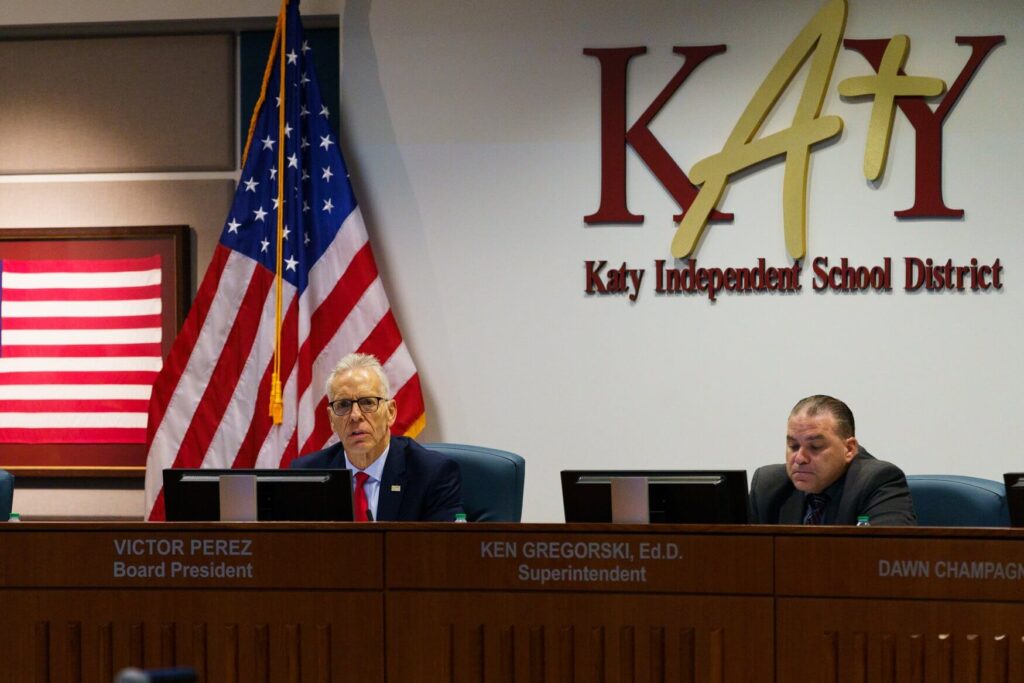What you need to know
- The Houston Landing has been covering Katy ISD's hotly debated gender policy since it was introduced last year.
- The Landing reported last year that the district disclosed the gender identities of 19 students to parents.
- The report was cited in a complaint to federal authorities and led to an investigation into the district, records show.
The U.S. Department of Education's Office of Civil Rights announced Monday an investigation into the Katy Independent School District to determine whether the school's controversial gender identity policy discriminates against students, according to records obtained by The Houston Landing. started.
The investigation comes after The Landing reported in November 2023 that Katy ISD disclosed the gender identity of 19 students to parents in the two months after the policy was passed. Weeks later, the student advocacy group Students Engage in Advancing Texas used the report's findings in a federal Title IX complaint alleging that Katy ISD discriminated against these students on the basis of gender.
Katy's conservative-majority school board becomes the first in Greater Houston to require staff to disclose students' gender identities to parents, with staff denying student requests such as using different pronouns. This is one of the policies that have been passed to make this possible.
The board passed the policy by a narrow 4-3 vote in August 2023 during a heated seven-hour meeting in which about 100 community members implored the board to reject the policy.
Katy ISD Gender Identity Policy
- Parents must allow staff to use pronouns different from the student's biological sex.
- Even with parental permission, staff may refuse to use a student's preferred name or pronouns.
- Staff cannot ask students about their preferred pronouns.
- Students must use restrooms and other facilities consistent with the gender assigned to them at birth.
- If a student identifies as transgender or requests a name/pronoun change, staff must notify the student's parents (exceptions may be made if abuse is suspected).
- Staff are unable to teach or share information about gender fluidity and the broader idea that gender is a social construct.
This policy outlines several obligations and prohibitions related to employees. They include:
The Office for Civil Rights (OCR) enforces Title IX, a federal law that prohibits sex discrimination in federally funded educational programs and activities. Records show OCR notified Katy ISD and requested information and documents for the investigation.
A Katy ISD spokesperson did not respond to a request for comment.
Katy Board President Victor Perez said in an interview with The Landing in January that the policy would provide information to parents and prevent teachers from making uncomfortable decisions, such as keeping a student's gender identity a secret from parents. He said the aim is to prevent this from happening.
“This policy was in no way hostile to any group,” Perez said. “The last thing you want is for teachers to become hostile.”
However, in March, The Landing published an article about the experience of 17-year-old transgender Cadence Carter. After the policy was passed, he complained of intolerance at his Katy ISD high school and was forced to drop out, he said.


Cadence said Monday that he would be happy if something could be done about the policy.
“We hope this will help set an example for other school boards across the country who are looking to pass similar policies,” Cadence said. “These policies hurt people. They drive students like me out of school and make us feel unsafe. I at least hope that other school districts will think about this.”
It's unclear how long OCR will take to investigate the area. Investigations may be completed in a variety of ways.
- The school district may at any time choose to resolve the complaint through a resolution agreement. Her OCR will decide if this is appropriate.
- If OCR determines that a school district is not in compliance with Title IX laws, the school district may enter into a voluntary resolution agreement to address the problem, or OCR may determine what steps the school district takes to correct the noncompliance. It can also outline what actions should be taken.


